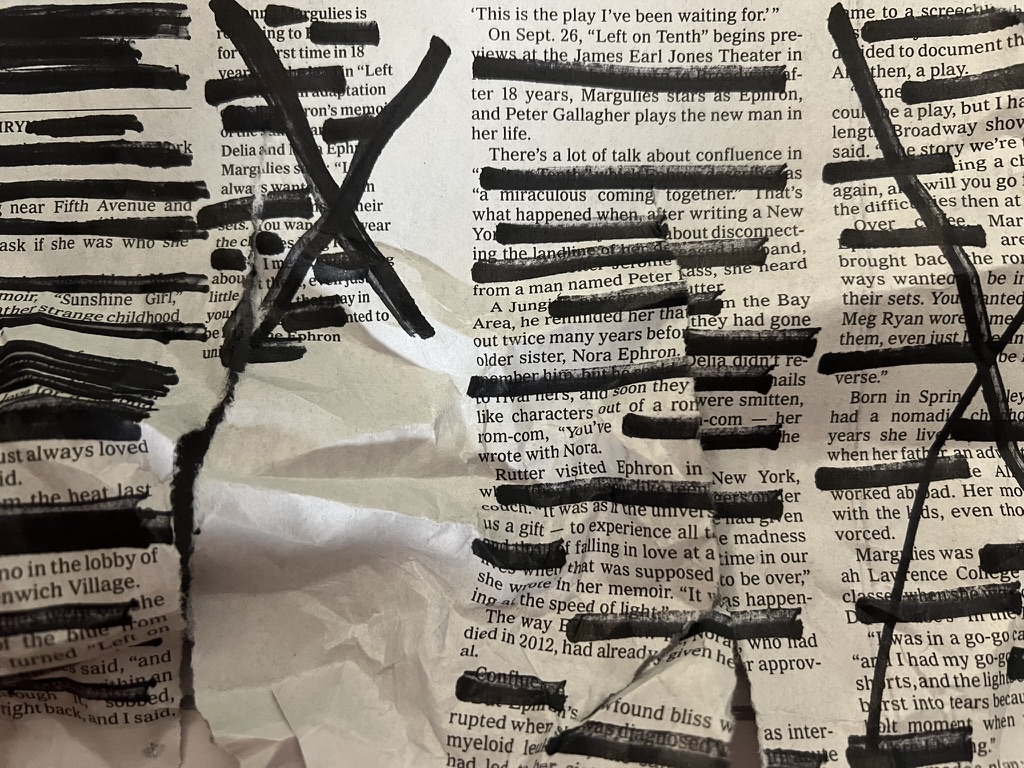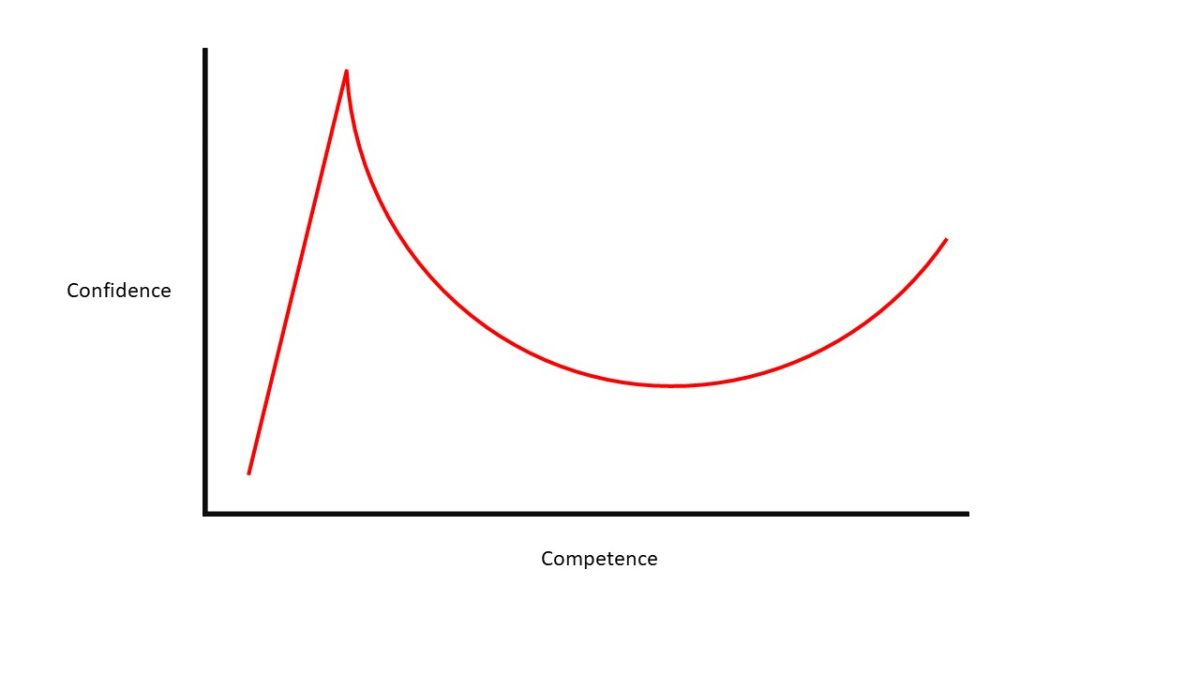“Democracy Dies in Darkness.” That is the motto on the masthead of The Washington Post. The Post adopted this motto in 2017 under the leadership of Martin Baron, and it was a refreshing commentary on the power newspapers had to hold institutions and powerful figures accountable. Unfortunately, mottos mean nothing unless action is put behind them, and The Washington Post has proved that they are willing to let democracy die in darkness by forgoing an endorsement in the 2024 Presidential Election. The Post is not the only publication to do this. The Los Angeles Times made headlines when they announced that they, too, would forgo endorsing a candidate for the 2024 Presidential Election. The shock in this story lies not with the non-endorsements, but rather with the influence that a few key figures have on these prominent American newspapers.
There are many opinions about when the newspaper industry began to experience troubles, bleeding money and readers. Circulation is down, and papers are trying to diversify their portfolio of offerings, ensuring that they have multiple income streams to offset the heavy costs associated with publishing. The unstable environment has led to mass layoffs, the near extinction of local journalism, and, most importantly, consolidation. Most papers in circulation are part of a much larger family of newspapers, causing some to question the power these conglomerates could have over shaping narratives on issues. Put simply, there is a decrease in the diversity of opinion that once existed in the press. As this diversity dwindles and the news environment becomes increasingly unstable, one group has risen as seeming saviors of these bastions of democracy: Billionaires.
Jeff Bezos, the founder of Amazon and one of the world’s wealthiest people, bought The Washington Post in 2013 for $250 million. At the time of the purchase, he stated that he would not use the publication as a vehicle for his “personal interest” and promised to bring the 146-year-old newspaper into the modern age. Patrick Soon-Shiong, a billionaire biotech businessman, purchased the Los Angeles Times for nearly 500 million dollars in cash in 2018. When he completed the acquisition, he noted that he counted on journalists to “speak on behalf of the people” when holding powerful figures accountable. He made it clear that he would support any reporting on his activities as long as it was fair and truthful. Soon-Shiong wanted the Los Angeles Times to evolve through an embrace of technology and expansion, even stating that he wanted it to be competitive with The Washington Post and The New York Times. Unfortunately, both of these billionaires have since let their personal opinions affect the publications they own.
Soon-Shiong’s leadership at the Times has been contentious, with his cutting 20% of the Times’s staff this past year, referencing high running costs and unsustainable continued losses. However, the paper has grown in subscriptions and was awarded several Pulitzer prizes for its quality journalism. Recently, many of those Pulitzer-prize-winning journalists have resigned or left the paper due to the non-endorsement; the editorial page editor Mariel Garza resigned in protest, starting a slew of resignations among the editorial board. The decision not to endorse was viewed internally as a rebuke of Vice President Kamala Harris, who the Times endorsed for her Attorney General and Senate runs in 2010 and 2016, respectively; the barring of publishing an endorsement came straight from Soon-Shiong. Soon-Shiong provided the defense that endorsing a candidate would only add to political division. Yet, he had no problem allowing the paper to endorse President Joe Biden in the 2020 presidential election. So what changed? After the initial shock of the non-endorsement, more information emerged that showed Soon-Shiong also killed a series of articles titled “The Case Against Trump” that would have run alongside the Times’s endorsement of Vice President Harris. This is not the first instance of Soon-Shiong’s shifting political stances. In 2016, Soon-Shiong and his family were major donors to Hillary Clinton’s presidential campaign; however, after her loss, Soon-Shiong met with former President Donald Trump twice to try to gain a high-ranking position in his administration.
A similar situation unfolded at The Washington Post, where the editorial board was ready and willing to endorse Vice President Kamala Harris for President, but owner Jeff Bezos stepped in at the eleventh hour and refused to let them publish their endorsement. This decision also set off widespread resignations and led over 250,000 people to cancel their subscriptions to the Post. It is important to note that nearly every time a newspaper endorses a candidate in any election, whether presidential or local, it does so as a reflection of the opinions of the editorial board, published under the opinion section. Therefore, it does not represent the complete views of the newspaper itself, only those on the editorial board. This practice was commonplace for both the L.A. Times and The Washington Post, with the Times having endorsed a candidate in most presidential races since its founding in 1881 (with a pause from 1976 to 2004), and the Post endorsing a candidate since 1976.
A society where billionaire owners can dictate what newspapers can and can’t publish is terrifying. It is believed that Bezos withheld the endorsement for fear of retribution from former President Donald Trump if he were to be reelected, and his fears are not unfounded. Amazon has received large government contracts in the past, whether for defense purposes or cloud storage. Still, the Trump administration tried to deny Amazon a cloud computing contract due to Jeff Bezos’s ownership of The Washington Post, which frequently angered the former president with its reporting. If Bezos truly fears retribution—which former President Trump promises to carry out on day one—then there is a deeper issue in our political system.
Similarly, Patrick Soon-Shiong is believed to have killed the endorsement for the personal gain of his medical businesses, as FDA approval could be easier to receive for medicines produced by his company if former President Trump is elected. If both billionaire owners fear a Trump administration that would use its full power to attack and undermine their respective newspapers, they should not be in the business of journalism. This is a sobering indictment of how one of the most important and most American values—the freedom of the press—has become twisted and attacked. If the newspaper that broke the Watergate scandal is fearful of the possible consequences of an endorsement, or the newspaper that was one of the first national publications to report on the death of Rodney King feels they cannot publish articles taking issue with former President Trump’s actions, then where do we stand as a country? While the President-elect threatens to take broadcasting licenses away from networks that he disagrees with, bringing the FCC—an independent agency—under presidential control, threatens to put reporters in jail for reporting on issues of national security using confidential sources, and jokes about reporters getting shot, where do we stand?
It is obvious where Jeffrey Bezos and Patrick Soon-Shiong stand. They stand for gain and protection for themselves, cowards in the face of a challenge. They stand for a future in which a president can control the media, where any dissent from a citizen or a company would result in direct retribution. By prohibiting their editorial boards from endorsing a candidate, Jeffrey Bezos and Patrick Soon-Shiong are extinguishing the light of the free press, and facilitating the death of democracy in darkness.
Sources:
Allsop, Jon. “The coverage of Rodney King and unrest in LA, thirty years on.” Columbia Journalism Review, 6 May 2022, https://www.cjr.org/the_media_today/rodney_king_unrest_la_thirty_years.php. Accessed 2 November 2024.
Anthony, Ted. “Washington Post becomes second major US newspaper this week to not endorse a presidential candidate.” AP News, 25 October 2024, https://apnews.com/article/washington-post-newspaper-endorsement-election-51de8348502aa17f432504c4764c63f5. Accessed 2 November 2024.
Arkin, Daniel. “Jeff Bezos defends Washington Post’s decision to stop presidential endorsements days before election.” NBC News, 29 October 2024, https://www.nbcnews.com/news/us-news/jeff-bezos-defends-washington-post-endorsement-decision-rcna177742. Accessed 2 November 2024.
Associated Press. “Two more LA Times editorial board members resign after the paper withholds a Harris endorsement.” AP News, 25 October 2024, https://apnews.com/article/los-angeles-times-editors-resign-af6c077d502c9d4878bee01fa6575450. Accessed 2 November 2024.
Associated Press. “The Washington Post’s new motto predates Trump’s election.” AP News, 24 February 2017, https://apnews.com/general-news-873b142df48c495485f7a6a1eaff021f. Accessed 3 November 2024.
Beckett, Lois. “Los Angeles Times sees resignations and loss of subscriptions after owner blocks Harris endorsement.” The Guardian, 25 October 2024, https://www.theguardian.com/us-news/2024/oct/25/los-angeles-times-owner-blocks-harris-endorsement. Accessed 2 November 2024.
Bernstein, Carl, and Bob Woodward. Statement on Washington Post’s Refusal to endorse presidential candidate. 26 October 2024. X, https://x.com/carlbernstein/status/1850216999994937611?s=42. Accessed 2 November 2024. Social Media Post.
Betts, Anna. “Furor over Washington Post’s decision to not endorse presidential candidate: ‘stab in the back’, ‘dying in darkness.’” The Guardian, 25 October 2024, https://www.theguardian.com/media/2024/oct/25/washington-post-will-not-endorse-presidential-candidate. Accessed 2 November 2024.
Folkenflik, David. “Did the ‘L.A. Times’ and other news outlets pull punches to appease Trump?” NPR, 24 October 2024, https://www.npr.org/2024/10/24/nx-s1-5163293/la-times-editor-resigns-trump-msnbc-washington-post. Accessed 2 November 2024.
Folkenflik, David. “New ‘LA Times’ Owner Wants To Compete With ‘New York Times’ And ‘Washington Post.’” NPR, 18 June 2018, https://www.npr.org/2018/06/18/620925039/new-la-times-owner-says-he-wants-to-compete-for-a-national-audience. Accessed 2 November 2024.
Folkenflik, David. “Trump threatens media with darker days if he wins the election.” NPR, 23 October 2024, https://www.npr.org/2024/10/22/nx-s1-5161480/trump-media-threats-abc-cbs-60-minutes-journalists. Accessed 2 November 2024.
Folkenflik, David. “’Washington Post’ flooded by cancellations after Bezos’ non-endorsement decision.” NPR, 28 October 2024, https://www.npr.org/2024/10/28/nx-s1-5168416/washington-post-bezos-endorsement-president-cancellations-resignations. Accessed 2 November 2024.
Gold, Michael, and Maggie Haberman. “Trump Tells Supporters He ‘Shouldn’t Have Left’ the White House.” The New York Times, 3 November 2024, https://www.nytimes.com/2024/11/03/us/politics/trump-pa-rally-election.html. Accessed 3 November 2024.
Lewis, William. “Opinion | On political endorsement – The Washington Post.” Washington Post, 25 October 2024, https://www.washingtonpost.com/opinions/2024/10/25/washington-post-endorsement/. Accessed 2 November 2024.
Lincoln, Ross A. “LA Times Planned ‘Case Against Trump’ Series Before Owner Quashed It.” TheWrap, 25 October 2024, https://www.thewrap.com/la-times-case-against-trump-kamala-endorsement-canceled/. Accessed 2 November 2024.
Lippman, Daniel, et al. “Tensions rise between the LA Times and its billionaire owner.” Politico, 18 September 2022, https://www.politico.com/news/2022/09/18/la-times-tension-patrick-soon-shiong-00056601. Accessed 2 November 2024.
The Los Angeles Times Editorial Board. “Editorial: A complete list of the L.A. Times’ 2016 endorsements.” Los Angeles Times, 5 November 2016, https://www.latimes.com/opinion/endorsements/la-ed-election-tuesday-20161105-htmlstory.html. Accessed 2 November 2024.
Marsi, Federica. “What is the history of newspaper endorsements and can they swing elections? | US Election 2024 News.” Al Jazeera, 30 October 2024, https://www.aljazeera.com/amp/news/2024/10/30/what-is-the-history-of-newspaper-endorsements-and-can-they-swing-elections. Accessed 2 November 2024.
McGough, Michael. “Opinion: Lighten up on The Washington Post. It’s only a newspaper slogan.” Los Angeles Times, 22 February 2017, https://www.latimes.com/opinion/opinion-la/la-ol-washingtonpost-slogan-20170222-story.html. Accessed 2 November 2024.
Milmo, Dan, and Lois Beckett. “Patrick Soon-Shiong: the billionaire LA Times owner who blocked Harris endorsement.” The Guardian, 25 October 2024, https://www.theguardian.com/media/2024/oct/25/patrick-soon-shiong-the-billionaire-la-times-owner-who-blocked-harris-endorsement. Accessed 2 November 2024.
Rainey, James. “L.A. Times owner’s decision not to endorse in presidential race sparks resignations, questions.” Los Angeles Times, 26 October 2024, https://www.latimes.com/business/story/2024-10-25/latimes-no-presidential-endorsement-decison-resignations. Accessed 2 November 2024.
Roig, Manuel, and Laura Wagner. “The Washington Post will not endorse a candidate for president.” Washington Post, 25 October 2024, https://www.washingtonpost.com/style/media/2024/10/25/washington-post-endorsement-president/. Accessed 2 November 2024.
Wikimedia Foundation. “Los Angeles Times.” Wikipedia, 2 November 2024, en.wikipedia.org/wiki/Los_Angeles_Times. Accessed 2 November 2024.
Wikimedia Foundation. “Patrick Soon-Shiong.” Wikipedia, 1 November 2024, en.wikipedia.org/wiki/Patrick_Soon-Shiong. Accessed 2 November 2024.
Wikimedia Foundation. “The Washington Post.” Wikipedia, 2 November 2024, en.wikipedia.org/wiki/The_Washington_Post. Accessed 2 November 2024.




